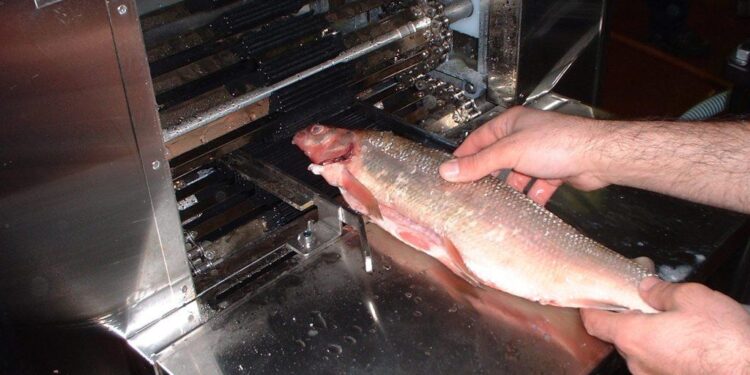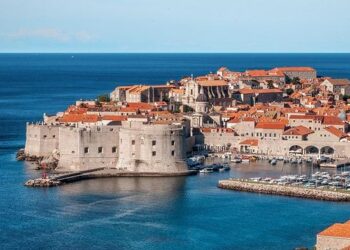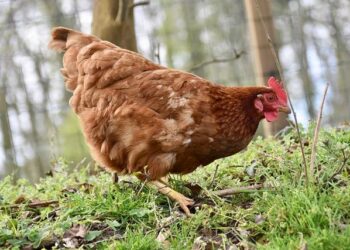Whitefish processors from across Europe have embarked on a mission to the Faroe Islands to explore cutting-edge technologies transforming the seafood industry. This initiative aims to enhance sustainable practices, improve processing efficiency, and boost product quality amid growing global demand for whitefish. Delegates visiting the remote North Atlantic archipelago will engage with local experts and innovators, gaining insights into advanced automation, cold chain management, and digital tracking systems. The mission underscores the sector’s commitment to modernization and environmental responsibility in a rapidly evolving market.
Whitefish Processors Investigate Innovative Sorting and Grading Technologies
Delegates from major whitefish processing companies visited the Faroe Islands to assess cutting-edge sorting and grading machinery that promise to revolutionize operations in the industry. Emphasizing efficiency and precision, these technologies leverage AI-powered imaging and automated weight classification to enhance product uniformity and reduce waste. Industry insiders noted that early trials indicate a potential 30% increase in throughput, driven by faster processing times and improved accuracy in defect detection.
Among the standout features explored were:
- Real-time grading adjustments based on dynamic weight and size data
- Integration with existing processing lines to minimize downtime during installation
- Enhanced traceability through blockchain-linked tracking systems
- Energy-efficient motors that contribute to lower operational costs
| Technology | Key Benefit | Estimated Impact |
|---|---|---|
| AI Imaging System | Precision Sorting | +25% Sorting Speed |
| Automated Weight Classifier | Consistent Grading | +30% Throughput |
| Blockchain Traceability | Supply Chain Transparency | Enhanced Customer Trust |
Enhancing Sustainability: Insights from Faroe Islands’ Advanced Processing Methods
During their recent mission to the Faroe Islands, whitefish processors gained invaluable experience in cutting-edge techniques that significantly reduce waste and energy usage in seafood processing. The local industry’s commitment to sustainability is demonstrated through integrated systems that maximize resource efficiency-from optimized filleting robots to state-of-the-art water recycling methods. The delegation focused on how smart automation and precision processing enable a lower carbon footprint without compromising product quality.
Key innovations observed include:
- Advanced sorting technologies that minimize bycatch and improve yield
- Automated trimming lines powered by AI for consistent high-grade fillets
- Energy-efficient freezing techniques reducing power consumption by up to 30%
- Innovative packaging solutions designed to extend shelf life and decrease plastic waste
| Technology | Benefit | Impact |
|---|---|---|
| Robotic Filleting | Precision cuts | +15% Yield Increase |
| Water Recirculation | Resource conservation | 40% Water Savings |
| Eco-Packaging | Waste reduction | 30% Less Plastic |
| Energy-Efficient Freezing | Lower power use | 30% Energy Reduction |
Recommendations for Integrating Automation to Boost Efficiency and Product Quality
To maximize the benefits of automation in whitefish processing, companies should prioritize seamless integration with existing workflows. This means leveraging modular automation systems that allow for gradual adoption without disrupting production lines. Additionally, investing in real-time monitoring tools can help detect bottlenecks and maintain consistent quality standards, ensuring products meet stringent market requirements. Employee training remains a critical component, enabling staff to operate and troubleshoot advanced machinery confidently, which ultimately prevents costly downtime.
Efficiency gains and improved product consistency can also be achieved by focusing on automation solutions tailored to specific stages of the processing chain. For instance, introducing automated sorting and grading systems enhances speed while reducing human error, while precision-controlled packaging machines ensure optimal portion sizes and minimal waste. The table below highlights key automation technologies and their expected impact on processing performance:
| Automation Technology | Primary Benefit | Expected Efficiency Gain |
|---|---|---|
| Automated Sorting Systems | Improved accuracy and speed | 20-30% |
| Robotic Filleting Machines | Consistency and labor reduction | 25-35% |
| Smart Packaging Lines | Reduced waste and better portion control | 15-25% |
| Real-time Quality Sensors | Continuous quality assurance | 10-20% |
Future Outlook
As whitefish processors continue to navigate an evolving seafood market, their mission to the Faroe Islands highlights the critical role of innovation and collaboration in sustaining industry growth. By exploring cutting-edge technologies and sharing best practices, these industry leaders aim to enhance efficiency, product quality, and environmental stewardship. The insights gained from this initiative are poised to influence processing practices far beyond the islands, signaling a forward-looking approach for whitefish production worldwide. The Fishing Daily will continue to monitor the developments emerging from this mission and report on their impact within the global fishing sector.












